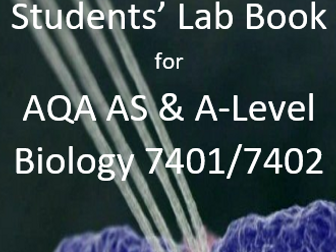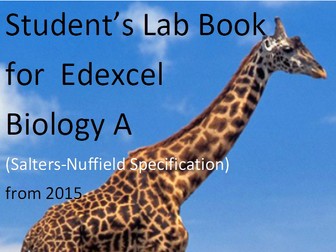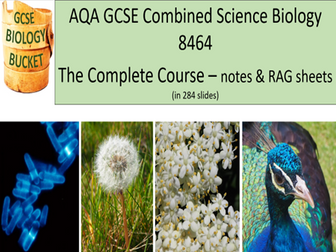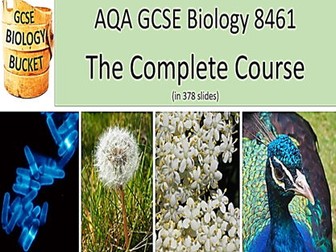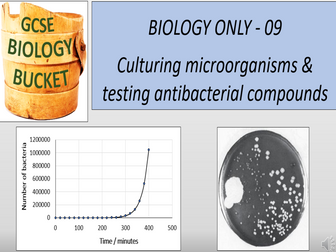Lab Book for AQA AS Biology new Spec 2015
This resource is designed to be printed and bound as a Lab Book which covers the AT and mathematical skills for AQA AS Biology 2015. It summarises the requirements for practical work and provides students with a range of practicals and a tool for teachers to assess progress and provide evidence of practical work. In line with the CPAC requirements it details the six “required practicals” and provides methods for a further 21 practicals, covering the AT skills, which will provide a minimum of 15% of the AS exam marks. Mathematical skills are covered and the Lab Book has sections of A-level theory and practice questions. It has pages for students to make tables, graphs, conclusions and evaluations and should help them to consolidate theoretical concepts and apply their knowledge and understanding in practical situations as well as assisting them to develop investigative skills. There are a number of research and planning tasks. Risk assessments are provided for guidance only.
